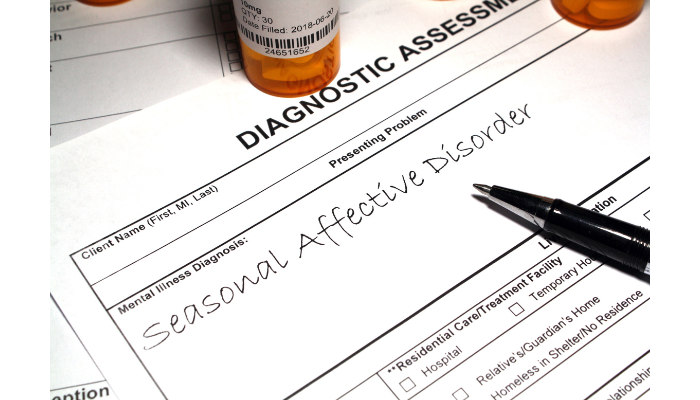Brighten Up Your Winter: Tips for Beating Seasonal Affective Disorder
December 20, 2023

As the winter months draw near and the days shorten with less sunlight, this is the time of year that can increase the risk for a specific type of depression known as Seasonal Affective Disorder (SAD). SAD is a common disorder affecting 1-2% of the population. The primary cause of SAD is believed to be a lack of sunlight, which disrupts the body’s internal clock and affects the production of serotonin, a neurotransmitter that helps regulate mood. Reduced sunlight exposure can lead to a decrease in serotonin levels, contributing to feelings of depression and lethargy. Additionally, the body’s melatonin levels may be affected, leading to disruptions in sleep patterns. Those who live in northern hemisphere countries, where exposure to light during the winter months is considerably shorter, are more at risk. The “older old,” aged 80-100, can have an increased incidence of SAD because they have a higher likelihood of having mobility impairments that keep them in their homes. Cold weather can be a contributing factor to SAD because seniors are more sensitive to lower temperatures and therefore less likely to engage in community events which leads to social isolation. Cognitively impaired elders may find the task of dressing in layers during cold spells to be a challenge and that task alone can be so daunting that they tend to stay indoors. A lack of exposure to sunlight can also lead to Vitamin D deficiency which affects calcium absorption so taking Vitamin D supplements may be helpful until you can get more exposure to sunlight.
Treatment options for SAD may include light therapy where individuals are exposed to bright light for a specific duration each day, helping to regulate the body’s internal clock. During light therapy, you sit or work near a device called a light therapy box. The box emits a bright light that mimics natural outdoor light. Thirty minutes a day is usually recommended and the brighter the light, the quicker it may work. Sometimes results are noted in a matter of days. Efforts can also be made to increase socialization opportunities. Connecting isolated elders with well-matched companions can often be a great match. Pet therapy can be another way to combat loneliness. Music can be an incredibly powerful mood elevator, especially music that reminds seniors of a time or event in their past. Music and tunes that they loved when they were in their 20s or 30s have the potential to bring back memories of happiness and excitement. If none of these measures are effective and the symptoms continue to persist, then further evaluation to see if the individual is suffering from a depressive disorder is indicated and a referral should be made to an appropriate mental health provider. Psychotherapy may help and antidepressants may be prescribed to help with a persistent mood disorder. SAD shouldn’t be brushed aside, especially this time of year! Recognizing the signs and symptoms and starting interventions early can promote happiness and a higher quality of life for seniors and their families.
Here are four types of light boxes commonly used for light therapy along with approximate pricing ranges:
1. Verilux HappyLight: The Verilux HappyLight series offers various models, including compact and full-sized options. Prices can range from $40 to $100, depending on the model and features
2. Circadian Optics Lumos: The Circadian Optics Lumos light box is a popular choice. It has a sleek design and adjustable brightness levels. Prices typically range from $50 to $80.
3. Northern Light Technologies Boxelite: The Northern Light Technologies Boxelite is a large, high-intensity light box that provides a wide field of bright light. Prices generally range from $170 to $200.
4. Day-Light Classic by Carex Health Brands: The Day-Light Classic is a well-known light box that offers a broad surface area for light exposure. Prices can range from $100 to $150.
For companion care, Holistic HomeCare Associates has over 500 highly qualified and personable caregivers and companions registered that can be matched to a client’s needs based on interests and skill sets.
Anne C. Sansevero RN, MA, GNP, CCM
Aging Life Care ® Professional
Founder & CEO
HealthSense LLC
240 East 47th St 38D
New York, NY 10017
Ph: (646) 241-3463
Fax: (646) 974-9487 – new
Email: anne@health-sense.org
Web: www.health-sense.org
Aging Life Care Association® National Board President
Aging Life Care Association® New York Chapter President Emerita
![HealthSense [logo]](https://www.health-sense.org/wp-content/uploads/sites/242/2017/02/logoNEW.png)